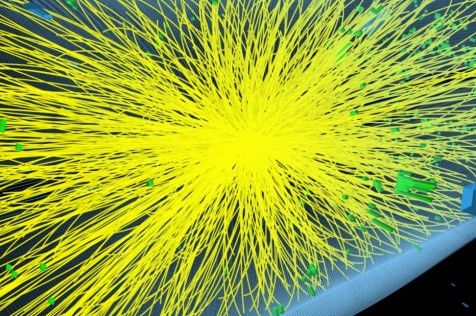While cosmologists may be fascinated by what dark matter does, particle physicists are fascinated by what dark matter is. For us, dark matter should be—naturally—a particle, albeit one that is still lurking hidden in our data. For the last few decades, we’ve had a tantalizing guess as to what this particle might be—namely, the lightest of a new class of supersymmetric particles. Supersymmetry is an extension to the Standard Model of particles and forces that nicely addresses lingering questions about the stability of the mass of the Higgs boson, the unification of the forces, and the particle nature of dark matter. In fact, supersymmetry predicts a vast number of new particles—one for each particle we already know about. Yet while one of those new particles could constitute dark matter, to many of us that would be just a happy byproduct.
But after analyzing data from the first (2010–2012) and second (2015–2018) runs of the Large Hadron Collider (LHC), we haven’t found supersymmetric particles yet—indeed, no new particles at all, beyond the Higgs boson. So, while we continue to hunt for supersymmetry, we’re also taking a fresh look at what our cosmology colleagues can tell us about dark matter. It is the strongest experimental evidence for new physics beyond the Standard Model, after all.
In fact, some might say that a principal goal of the LHC and future colliders will be to create and study dark matter. For that to happen, there must be a means for the visible universe and the dark universe to communicate with each other. In other words, the constituents of the particles that we collide must be capable of interacting with the putative dark-matter particles via fundamental forces. A force requires a force carrier, or boson. The electromagnetic force is carried by the photon, the weak nuclear force by so-called vector bosons, and so on. Interactions between dark matter and normal matter should be no different: They could happen by exchanging dark bosons.

Dark matter is a myth of the past! It has been disproved! The debate is over!
I prefer dispoven, but spell check corrected.